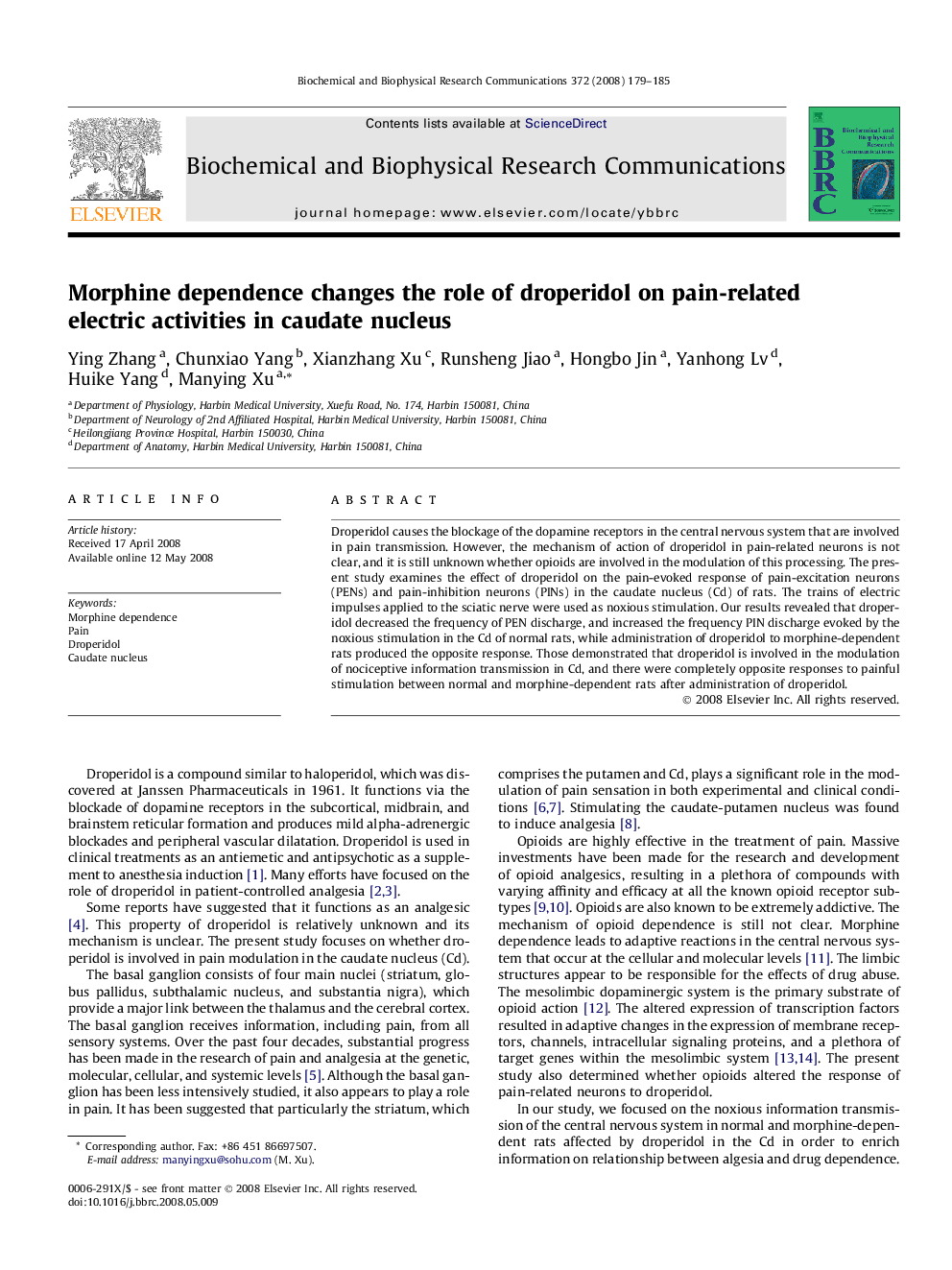| Article ID | Journal | Published Year | Pages | File Type |
|---|---|---|---|---|
| 1935527 | Biochemical and Biophysical Research Communications | 2008 | 7 Pages |
Abstract
Droperidol causes the blockage of the dopamine receptors in the central nervous system that are involved in pain transmission. However, the mechanism of action of droperidol in pain-related neurons is not clear, and it is still unknown whether opioids are involved in the modulation of this processing. The present study examines the effect of droperidol on the pain-evoked response of pain-excitation neurons (PENs) and pain-inhibition neurons (PINs) in the caudate nucleus (Cd) of rats. The trains of electric impulses applied to the sciatic nerve were used as noxious stimulation. Our results revealed that droperidol decreased the frequency of PEN discharge, and increased the frequency PIN discharge evoked by the noxious stimulation in the Cd of normal rats, while administration of droperidol to morphine-dependent rats produced the opposite response. Those demonstrated that droperidol is involved in the modulation of nociceptive information transmission in Cd, and there were completely opposite responses to painful stimulation between normal and morphine-dependent rats after administration of droperidol.
Related Topics
Life Sciences
Biochemistry, Genetics and Molecular Biology
Biochemistry
Authors
Ying Zhang, Chunxiao Yang, Xianzhang Xu, Runsheng Jiao, Hongbo Jin, Yanhong Lv, Huike Yang, Manying Xu,
